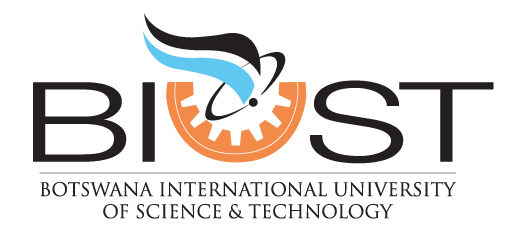Palapye, Botswana – 24 July 2025 — The Botswana International University of Science and Technology (BIUST), in partnership with the BIHL Trust, proudly hosted the 3rd Congregation of the Girls Excelling in Mathematics and Science (GEMS) Project Showcase and Prizegiving Ceremony. This inspiring event marked the culmination of a transformative three-year initiative dedicated to empowering young women in STEM across Botswana.
Launched in 2022 through the generous sponsorship of the BIHL Trust, the GEMS programme has directly impacted 108 girls from six senior secondary schools: Shakawe, Maun, Ghanzi, Matsha College, Mahupu Unified, and Tsabong Unified. Each school has consistently produced 18 STEM ambassadors, shaping a grassroots pipeline of innovators from some of the most remote regions of the country.
Delivering the keynote address on behalf of Professor Abraham A. Ogwu, Deputy Vice Chancellor for Research, Development and Innovation at BIUST, Professor Ochieng Aoyi, Director of Research and Innovation, emphasized the national importance of investing in science education for girls:
“When we invest in science education from an early age, especially in our local communities, we lay the foundation for a knowledge-driven society. Every young scientist here today represents more than just personal potential—they represent national potential.”
The STEM project presentations were assessed by a panel of judges based on a comprehensive set of criteria, including presentation quality, clarity of the problem and solution, originality of STEM application, creativity, novelty of concept, sustainability, replicability, scalability, and depth of self-reflection.
Ghanzi Senior Secondary School emerged as the overall winner, successfully defending their 2023 title and reinforcing their place in the GEMS legacy of excellence.
Winning Project: Ghanzi Senior Secondary School
Project Title: Sustainable Water Purification in the 21st Century
This project explored an innovative, low-cost method for purifying water using activated charcoal, crushed eggshells, and Moringa oleifera seeds—all natural, locally available materials. The team selected these agents for their eco-friendly and complementary properties:
- Moringa seeds act as natural flocculants that bind suspended particles and pathogens,
- Eggshells help neutralize acidity and remove heavy metals like lead, and
- Activated charcoal adsorbs odours, organic pollutants, and residual toxins.
Experimental tests showed outstanding results:
- pH improvement from 4.0 to a neutral 7.0,
- A 63.7% reduction in bacterial colonies, and
- A significant decrease in lead (II) ion concentration.
Further, seed germination trials using treated water revealed an increase from 25% (in untreated water) to 100%, proving its agricultural potential. This project aligns with Botswana’s Vision 2036 and national goals to reuse 96% of treated wastewater by 2030. It also contributes to SDG 6 (Clean Water and Sanitation) and SDG 3 (Good Health and Well-being).
Other Featured Projects:
Maun Senior Secondary School presented “FMD BIOSENSOR”, a low-cost, user-friendly electrochemical biosensor designed to detect Foot and Mouth Disease (FMD) in cattle. Using a toggle switch and LED indicators, the prototype simulates test results and offers a faster, more accessible alternative to the current ELISA test available only in Gaborone.
Mahupu Unified School showcased “PuriFlo-Floratech”, a multi-stage water purification system integrating carbon filters and hydroponics. Using plants such as water hyacinth and Salvinia molesta, the system treats greywater and lab wastewater, making it reusable and safe for consumption.
Shakawe Senior Secondary School presented “A Data-Driven Approach to Solving Monitoring Gaps in School Environments,” a scalable QR-code-based system designed to enhance student attendance tracking, improve school security, and streamline administrative processes.
In his welcome remarks, Dr. H. Motlhabane of BIUST reflected on the dedication of all involved and the programme’s wider impact:
“You are beacons of hope and torchbearers for the girl-child on this transformative journey toward a knowledge economy. You are defying the odds in this excruciating world of male domination. While the programme may have produced just 108 girls over three years, these are seeds—nuclei from which millions of future scientists will emerge.”
Professor Nhlekisana, representing the BIHL Trust during the prizegiving ceremony, commended the girls’ courage and brilliance:
“You’ve proven that girls from every part of Botswana rural, urban, north, and south have something powerful to offer. You are no longer just girls interested in science. You are future engineers. Future coders. Future leaders.”
As the GEMS programme concludes, BIUST and the BIHL Trust emphasized that this milestone is not an end, but the beginning of a new journey. The girls, now equipped with confidence, knowledge, and mentorship, are ready to take on the challenges of the Fourth Industrial Revolution and shape Botswana’s future through science and innovation.
